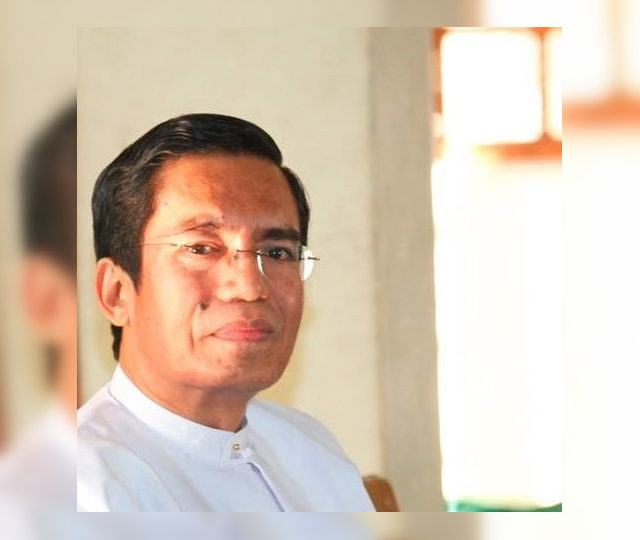Myanmar’s Ministry of Information is hosting a media tour this week in war-torn parts of Kachin State, where hundreds of civilians have been displaced by recent fighting between the Tatmadaw (Myanmar army) and the Kachin Independence Army (KIA). However, not everyone was welcome on the tour.
According to Lynn Bobo, a photojournalist working for the European Pressphoto Agency, the ministry showed a clear preference for Japanese and Chinese reporters in its selection of participants. He took to Facebook yesterday to vent his frustration with the ministry.
“There’s no problem with Japanese [and Chinese] reporters; there is a problem with only bringing them and no other media [representatives],” he wrote.
A few hours later, deputy information minister Aung Hla Tun, a former reporter who is famously antagonistic toward independent foreign media, posted on his personal Facebook page what appeared to be a response to the photojournalist’s complaint.
“Some of you contacted me concerning sending the media team to cover in the conflict areas in Kachin State yesterday. Here is my answer to all your questions,” his letter opened, before launching into an explanation for why media tours of conflict areas need to be “restricted.”
“When nominating the team members, priority has to be given to those who can convey the message we would like to send to the targeted audiences,” Aung Hla Tun wrote. “It’s very important that we mustn’t send those who will fan and fuel the flames of conflicts. We should prioritize those who practice peace journalism.”
The letter went on: “China and Japan are at the top of the list of the nations which are providing our country with assistance concerning the ongoing peace process. It’s very important that the governments and peoples of China and Japan realize our real situation on the ground. I understand this is the reason why Chinese and Japanese media were prioritized.”
The post received dozens of reactions, and screenshots circulated within journalist circles. Then, a few hours after it went up, Aung Hla Tun deleted the post, replacing it this morning with a shorter one that omits the references to China and Japan and says the restrictions were based only on logistical concerns.
“The number of the media is far bigger than that the regional authority can handle,” he wrote in the second post.
Today, Myanmar state media began reporting on the Kachin State media tour, describing a meeting between the participants and a Tatmadaw general who said there is “no fighting” in the area and encouraged displaced people to return to their homes.
Local residents speaking remotely to independent Myanmar media, however, say their villages remain heavily militarized and that they will not return without guarantees of safe passage from both the Tatmadaw and the KIA.
They also say the Tatmadaw has begun forcing displaced people to leave their makeshift camps and seek shelter with friends or relatives. They say the military wants to prevent the formation of new IDP camps because they will “damage the townships’ reputations.”
Remarking on the Deputy Minister Aung Hla Tun’s posts in light of these discrepancies, Lynn Bobo told Coconuts: “I want him to describe what is ‘peace journalism’ without free and fair conditions. Journalism isn’t a messenger for the government or whoever is willing to deliver messages as they want. Why would a man who worked as journalist for more than two decades say such a shameful thing?”



